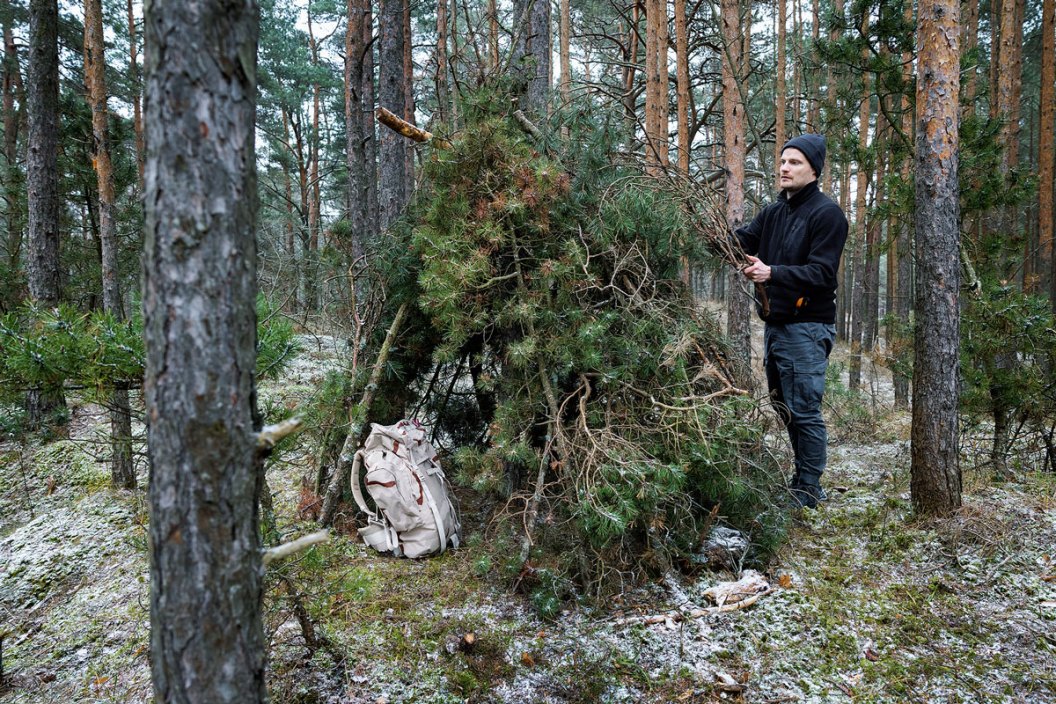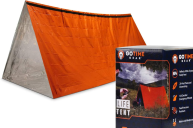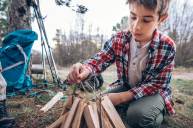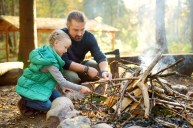It's better to find out you don't know something well ahead of time.
There are a few survival skills everyone should practice on a regular basis. When the time comes for someone to actually use these skills, it will probably be a stressful survival situation. It would be best to know how to do it beyond having done it once. Practice is a simple tenet of basic preparedness.
First aid is a separate topic and something that should also be regularly practiced with a first aid kit similar to whatever you carry.
Remember to include a tourniquet.
General Wilderness Survival
There's a lot of survival techniques you can hone by spending time in the woods with the bare essentials, at least for a couple days every few months. Make these trips about practicing your skills.
Hone your bushcraft skills by practicing your emergency fire-starting skills, both for heat and cooking.
Bring a tent, but build and use improvised survival shelters for practice. Practice building primitive shelters and tying knots with paracord and wood you can harvest from the forest.
Casual occasions like this are a great time to practice starting friction fires and building a bow drill kit or using other fire starters you're familiar with. It's always easier when you also have a lighter in your pocket.
Each of these practices are also great ways to test out your survival gear is still in good working condition.
Only Use Your Bug-Out Bag
Another good practice is to head out for an overnight in the wilderness with nothing but your bug-out bag. This will let you know for sure if you have the right gear in your kit for an emergency situation by manufacturing similar conditions.
If you leave from your home, you can also test out your navigation skills and knowledge of the area, including fresh water sources and other valuable resources you may need to exploit in an emergency.
Don't Bring Water
You can also practice other skills while on quick overnight camping trips, which also allow you to travel lighter.
Try out your methods for purifying water, either with a filter or with water purification tablets or drops, so you don't have to guess when purifying drinking water out of necessity.
Do It In The Cold
Doing all this in cold weather adds another layer of difficulty, but it also gives you a true yardstick for how well your gear, sleeping system and shelter help you retain body heat. It's better to know one piece of the equation isn't up to snuff beforehand.
The most important thing about these trips is gleaning everything you can, and the best way to do this is to create a field guide and log everything you do. This means recording all the difficulties you run into, as well as anything you think you may need to add or subtract from your general survival kit going forward.
Then compare this to some quality survival book on the shelf. This way, you can continue building on your survival training and wilderness survival skills without covering the same ground or missing crucial components.
NEXT: PENNSYLVANIA CHURCH DENIES RAFFLE WINNER OF FISHING TRIP BECAUSE SHE'S A WOMAN
WATCH





